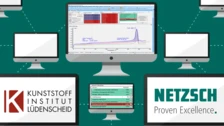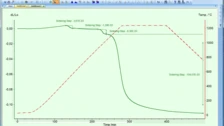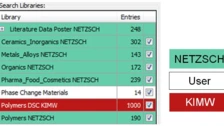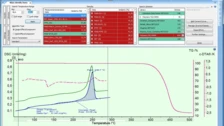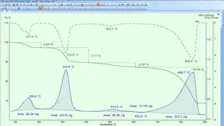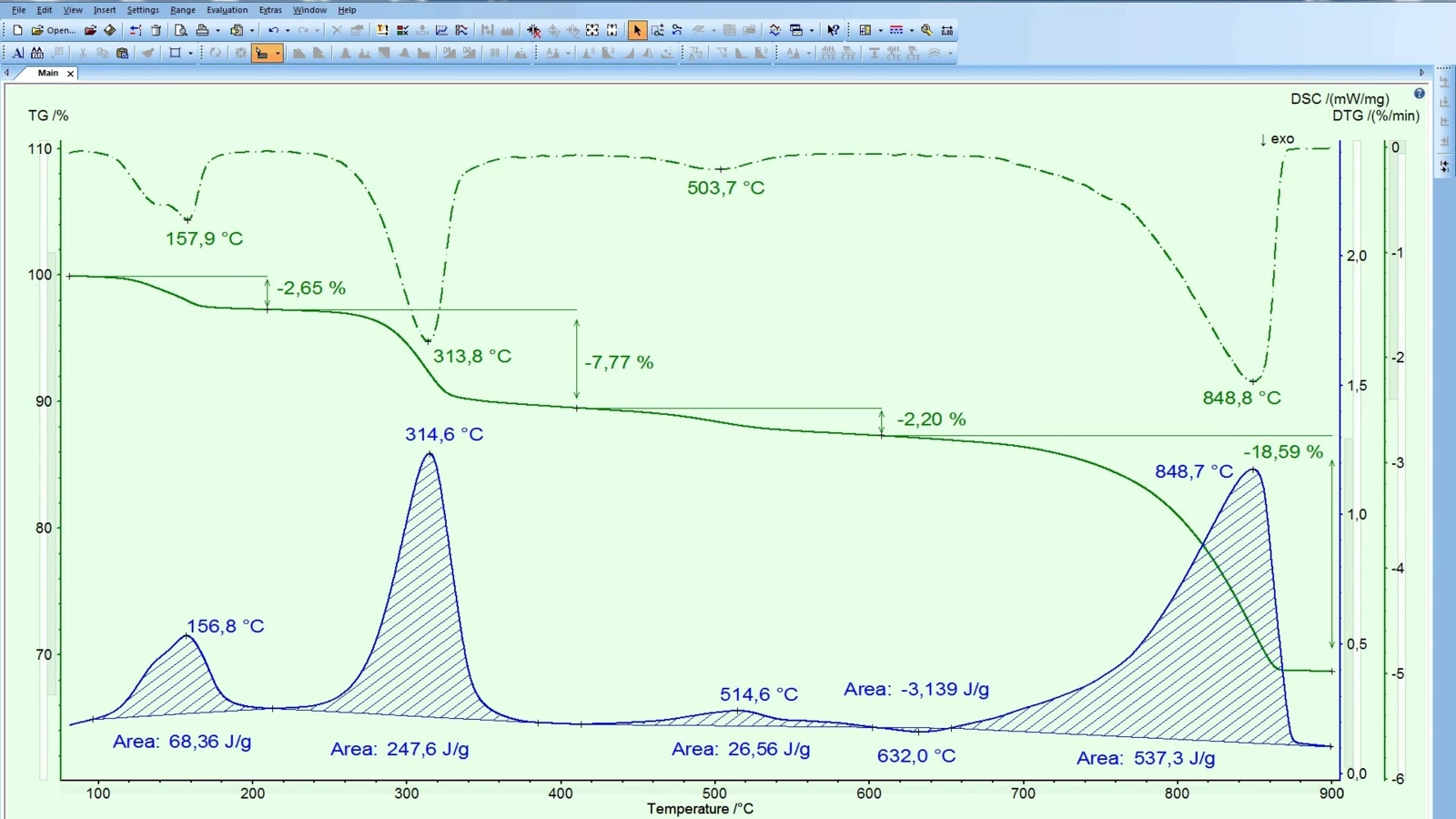
08.09.2018 von Dr. Alexander Schindler
Smart Thermal Analysis (Part I): Automatic Evaluation of DSC, TGA and STA Measurements
AutoEvaluation by NETZSCH is a very helpful tool for evaluation of thermoanalytical measurements. The entire measurement is evaluated by AutoEvaluation automatically and autonomously (not via pre-defined macro!) – with only one mouse click – and just within a second. AutoEvaluation is available for DSC, TGA and now also for STA measurements. Furthermore, the adaptability of AutoEvaluation is adressed.
AutoEvaluation by NETZSCH is a very helpful tool for evaluation of thermoanalytical measurements. The entire measurement is evaluated by AutoEvaluation automatically and autonomously (not via pre-defined macro!) – with only one mouseclick – and just within a second. This saves a lot of valuable time! Moreover, evaluations from AutoEvaluation are user-independent. AutoEvaluation is clearly supporting beginners but also gives a second opinion for experts. In any case, AutoEvaluation makes thermal analysis smarter!
Glass transitions, crystallization and melting peaks observed in DSC measurements of polymers are evaluated automatically. Furthermore, melting peaks of metals and other, e.g., calibration materials can be evaluated. In case of TGA, all significant mass changes are evaluated and the DTG curve can be shown including peak temperatures already labeled – everything with one click by AutoEvaluation. And AutoEvaluation can even be incorporated into measurement methods: In this case, the evaluations are done automatically right after the measurement finished!
Watch our video showing the use of AutoEvaluation (and also Identify):
Watch our video highlighting the new functions “Endo and Exo” (especially for STA):
The new function for AutoEvaluation, called “Endo- and Exo Effects”, automatically evaluates any endothermic or exothermic effects occurring in DSC curves. Independent of the sample material and independent of the instrument used (NETZSCH DSC 2xx, DSC 404 or STA 449).
Adaptability of AutoEvaluation:
Since several functions like “Polymer” or “Endo and Exo” exist, AutoEvaluation can be adapted to the particular application. Which evaluations done by AutoEvaluation should be displayed? And which properties of these evaluations (like peak area, onset temperature, …) should be shown? All this can be customized in Settings. Last but not least, the results of AutoEvaluation could be revised by the user – if desired.
